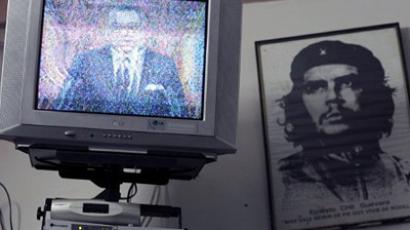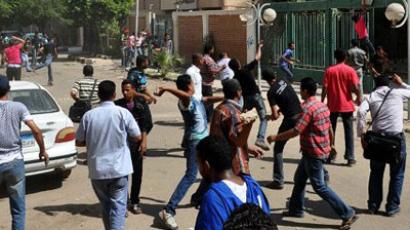Scent of Arab Spring in Israel
Tens of thousands are taking part in nationwide mass protests in Israel to demand the government provide cheaper housing and lower the cost of living. The biggest protest yet, centered in Tel-Aviv, is planned for Saturday night.
On July 25, 30,000 people marched through Tel-Aviv demanding a decrease in housing prices. Some of them were carrying banners reading “Mubarak. Assad. Netanyahu.” Police arrested 42 activists – an unprecedented case for Israel.On Wednesday Prime Minister Benjamin Netanyahu had to postpone visit to Poland due to the housing crisis in Israel.On Thursday in 12 towns of Israel a “baby carriage parade” was held: parents of small children have been demanding creation of state-sponsored kindergartens and control over child goods pricing policies.In Tel-Aviv, on the Rothschild Boulevard, people have been living in tents for weeks now protesting against expensive housing. Tent camps have been set up in various Israeli cities by students.New rallies are expected this weekend in Jerusalem and other Israeli cities.Israel is changing in the most inspiring and uplifting way in unprecedented wave of demonstration throughout the country and it is only the beginning of the process emerging in Israel, believes Hagai El-Ad, executive director of the Association for Civil Rights in Israel.“People are demanding social justice on a broad variety of issues, including housing, but also health, employment and qualities of society in general,” he said.What has begun in Israel is a very arrogant response to the Arab Spring protests which inspired Israeli protesters with a sense of “people power”, that “the country belongs to the people, and the people are rejecting economic disparities in the senseless privatization that we have seen over the last 15 years in this [Israel] country.”Much of the criticism has been targeted at Prime Minister Benjamin Netanyahu, but it was not just the last two years of his cabinet that has put the Israel into the current economic situation – though the current government might have pushed it to the extreme.Palestinian-Israeli journalist Aziz Abu Sarah agrees there is a strong connection between the present protests in Israel and the chain of revolutions across the Arab states.“People in Israel, just like everywhere else, saw that people… can make a difference, can make a change,” he told RT. “They were using the same rhythm, the same chants almost that in Egypt people used. So, you can see a lot of parallels.”The journalist points out that the way the protests started is almost identical to what occurred in Egypt, Tunisia and other places:“[It] started through Facebook, through social media – that’s how people organized completely in the beginning by young people in Israel, students, people who feel that they have no future, people who feel that they can’t afford living here. So, there are a lot of parallels and things that people, the young in Israel are learning from the protests that happened in Egypt.”














